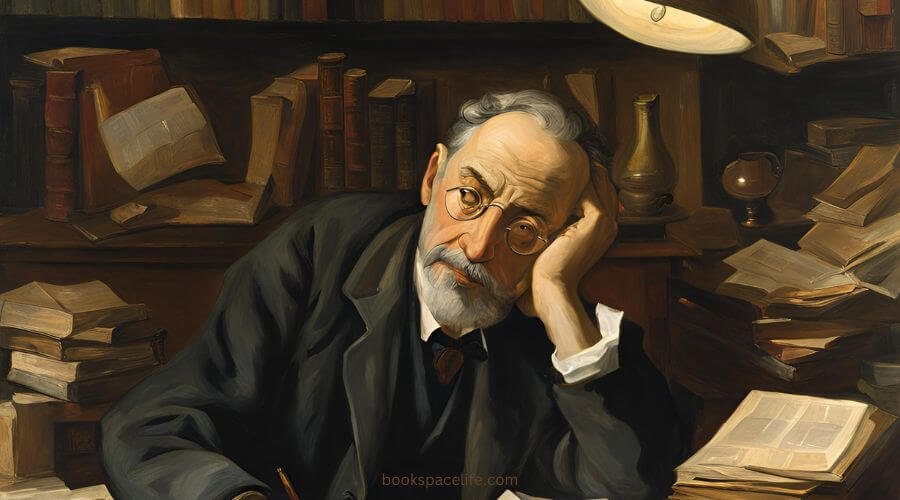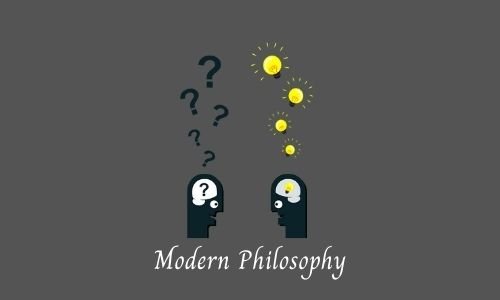Philo of Alexandria
Franz Rosenzweig : A Revolutionary Voice in Modern Jewish Philosophy
Franz Rosenzweig (1886 – 1929 CE) was a seminal Jewish philosopher whose work bridged Jewish thought with existential philosophy.
He played a major role in modern Jewish intellectual circles, known especially for his magnum opus, The Star of Redemption, which redefined the relationship between God, humanity, and the world.
His life and philosophy speak to the tensions between faith and modernity, the quest for personal and communal identity, and the struggle for meaning in a fractured world.
This blog post delves into his life, philosophy, and the enduring impact of his ideas.
Table of Contents
(1) Early Life and Education
Franz Rosenzweig was born on December 25, 1886, in Kassel, Germany, into a well-educated, assimilated Jewish family.
His father was a successful businessman, and his family was largely secular, with their Jewish identity more cultural than religious.
As a young man, Rosenzweig initially considered converting to Christianity to more fully integrate into German society, which highlights the complexity of Jewish identity in Germany at the time.
However, his faith journey took a different turn, ultimately steering him toward an authentic engagement with his Jewish heritage.
Rosenzweig attended the University of Freiburg and the University of Berlin, studying a wide array of subjects, including medicine, history, and philosophy.
His academic prowess quickly became apparent, and he excelled in historical studies. He was influenced by a range of philosophers, including Georg Wilhelm Friedrich Hegel, whose work he later engaged critically.
It was Rosenzweig’s rigorous study and the philosophical questions he encountered in this period that set the stage for his later writings.
(2) A Turning Point: Rosenzweig’s Religious Awakening
In 1913, during a period of intense spiritual searching, Rosenzweig had a profound existential experience.
He had planned to convert to Christianity, believing it offered a stronger foundation for understanding his German identity and philosophical concerns.
However, on Yom Kippur—the Jewish Day of Atonement—he attended synagogue services, and this experience fundamentally changed him.
He felt a deep, personal connection to Judaism and decided to remain Jewish, committing himself to rediscovering his heritage.
This marked a significant turning point in Rosenzweig’s life, leading him to study Judaism in depth and to seek a philosophical framework that could reconcile his Jewish faith with the existential and philosophical insights of modernity.
(i) The Star of Redemption: Rosenzweig’s Magnum Opus
Rosenzweig’s most influential work, The Star of Redemption, was published in 1921 and remains a cornerstone of modern Jewish philosophy.
Written during World War I, while Rosenzweig was serving on the front lines, The Star of Redemption was conceived in dire circumstances and represents a radical departure from traditional philosophy.
Rather than an abstract, purely intellectual endeavor, the book reflects Rosenzweig’s conviction that philosophy must address the lived experience of faith, community, and identity.
The Star of Redemption is structured around a symbol—a six-pointed star, the Magen David or Star of David—that reflects the relationships between God, humanity, and the world.
Rosenzweig uses this star to illustrate the dynamic, interconnected nature of these relationships, which he believed were foundational to a meaningful life.
(ii) Key Concepts in The Star of Redemption
- Creation, Revelation, and Redemption: Rosenzweig frames existence through these three central themes. Creation establishes the world; revelation provides meaning and connection through God’s communication with humanity; and redemption, a future-oriented concept, reflects the ultimate fulfillment of the relationship between God, humanity, and the world.
- Dialogue and Relationship: Unlike traditional philosophical systems, which often emphasize individual self-awareness, Rosenzweig argued that relationships form the core of human experience. His emphasis on “I-Thou” relationships was later expanded by Martin Buber, a contemporary and friend, who developed it into his own philosophy of dialogical existence. Rosenzweig saw dialogue as central to human existence, believing that people encounter the divine through their relationships with others.
- Jewish and Christian Paths to Redemption: Rosenzweig proposed that Judaism and Christianity offered unique but complementary paths to understanding and redemption. Judaism, with its focus on revelation and eternal covenant, represents an enduring relationship with God, while Christianity, with its emphasis on historical mission and redemption, offers a vision of bringing divine love into the world. Rather than advocating for one faith over the other, Rosenzweig saw these paths as interdependent and mutually enriching.
Rosenzweig’s approach was innovative in that he presented Judaism not merely as a religion but as a way of being and relating to the world. This stood in contrast to Enlightenment thinkers who often emphasized universal principles over particular identities.
(iii) The Impact of the Lehrhaus and Jewish Community Engagement
After returning from the war, Rosenzweig’s philosophical ideas took shape not only in his writing but also in his community work.
He helped found the Freies Jüdisches Lehrhaus (Free Jewish House of Learning) in Frankfurt in 1920.
The Lehrhaus was a unique institution: rather than a traditional yeshiva, it was a place where Jews of all backgrounds could explore Jewish history, language, philosophy, and culture in an open and dialogical environment.
At the Lehrhaus, Rosenzweig introduced a new model of Jewish learning that emphasized study as a collective, dialogic process.
He sought to make Jewish knowledge accessible, encouraging Jews to approach their heritage with curiosity and openness.
This educational initiative attracted many notable Jewish thinkers, including Martin Buber, and became an influential center for the revival of Jewish learning in Germany.
(3) Rosenzweig’s Influence and Legacy
Rosenzweig’s impact on Jewish thought is profound, especially in the realms of theology, education, and existential philosophy.
His ideas about revelation and redemption inspired numerous Jewish thinkers and educators, and his emphasis on dialogue influenced religious thinkers across traditions.
Rosenzweig’s work laid the groundwork for a renewed Jewish identity that embraced both tradition and modernity, making space for a deeply personal, existential approach to faith that resonated with Jews seeking to navigate the tensions of modern European life.
After his death, Rosenzweig’s influence continued to grow. Martin Buber, who was deeply influenced by Rosenzweig’s ideas on dialogue, co-authored a German translation of the Hebrew Bible with him.
This translation aimed to capture the poetic and spiritual resonance of the Hebrew text and became a beloved resource for German-speaking Jews.
Rosenzweig’s ideas about existential, dialogical Judaism also paved the way for later Jewish thinkers, such as Emmanuel Levinas, who further explored the ethical and relational dimensions of Jewish philosophy.
Levinas’s philosophy of “the Other” echoes Rosenzweig’s focus on relationship and responsibility, illustrating Rosenzweig’s lasting impact.
(4) Later Life and Struggles with ALS
In his later years, Rosenzweig faced significant health challenges. He was diagnosed with amyotrophic lateral sclerosis (ALS), a neurodegenerative disease that gradually impaired his ability to move and speak.
Despite his physical limitations, Rosenzweig continued to work, dictating his thoughts to his wife and friends.
His resilience in the face of illness and his commitment to his philosophical and community projects inspired many. Rosenzweig passed away on December 10, 1929, leaving behind a legacy of philosophical innovation and a model of Jewish life that embraced both faith and intellectual inquiry.
(5) Conclusion: Rosenzweig’s Enduring Relevance
Franz Rosenzweig’s life and philosophy continue to inspire Jewish and non-Jewish thinkers alike.
His willingness to engage with modern existential questions while remaining committed to Jewish tradition represents a powerful example of intellectual courage and spiritual depth.
His work on The Star of Redemption challenges readers to consider the relational foundations of human existence, encouraging dialogue, openness, and mutual understanding.
Rosenzweig’s legacy is felt in Jewish education, existential philosophy, and theology, where his ideas about dialogue and relationship remain deeply relevant.
For those seeking meaning in a fragmented world, Rosenzweig’s insights offer a path toward redemption through community, understanding, and faith.
His contributions are a testament to the richness of Jewish thought and its capacity to address universal human questions, making Rosenzweig a towering figure in the landscape of modern philosophy.
Franz Rosenzweig’s commitment to Jewish learning and existential dialogue continues to resonate with contemporary audiences.
His work stands as a bridge between ancient wisdom and modern questions, inviting each new generation to seek meaning in their relationships—with each other, with the world, and with the divine.








